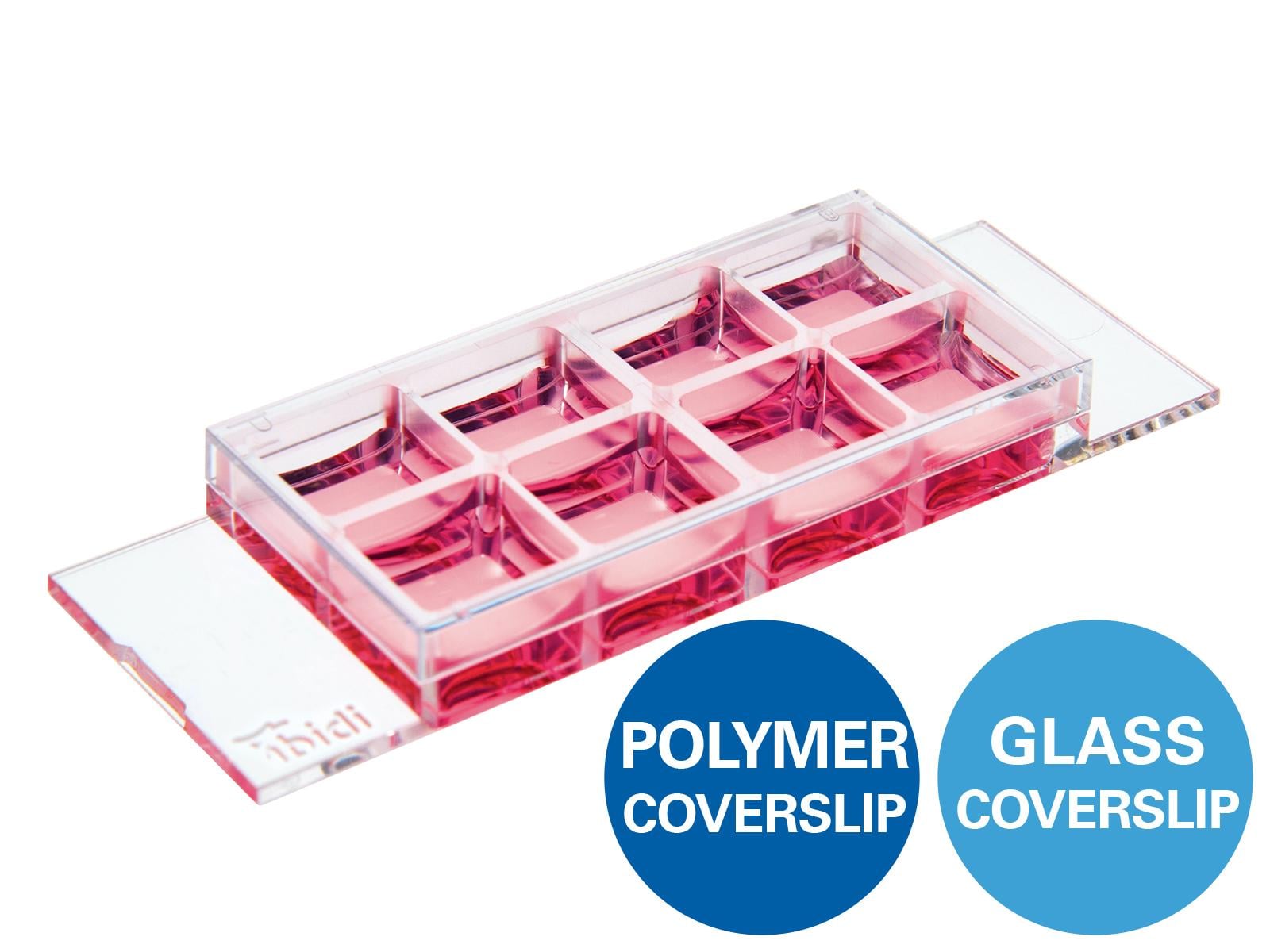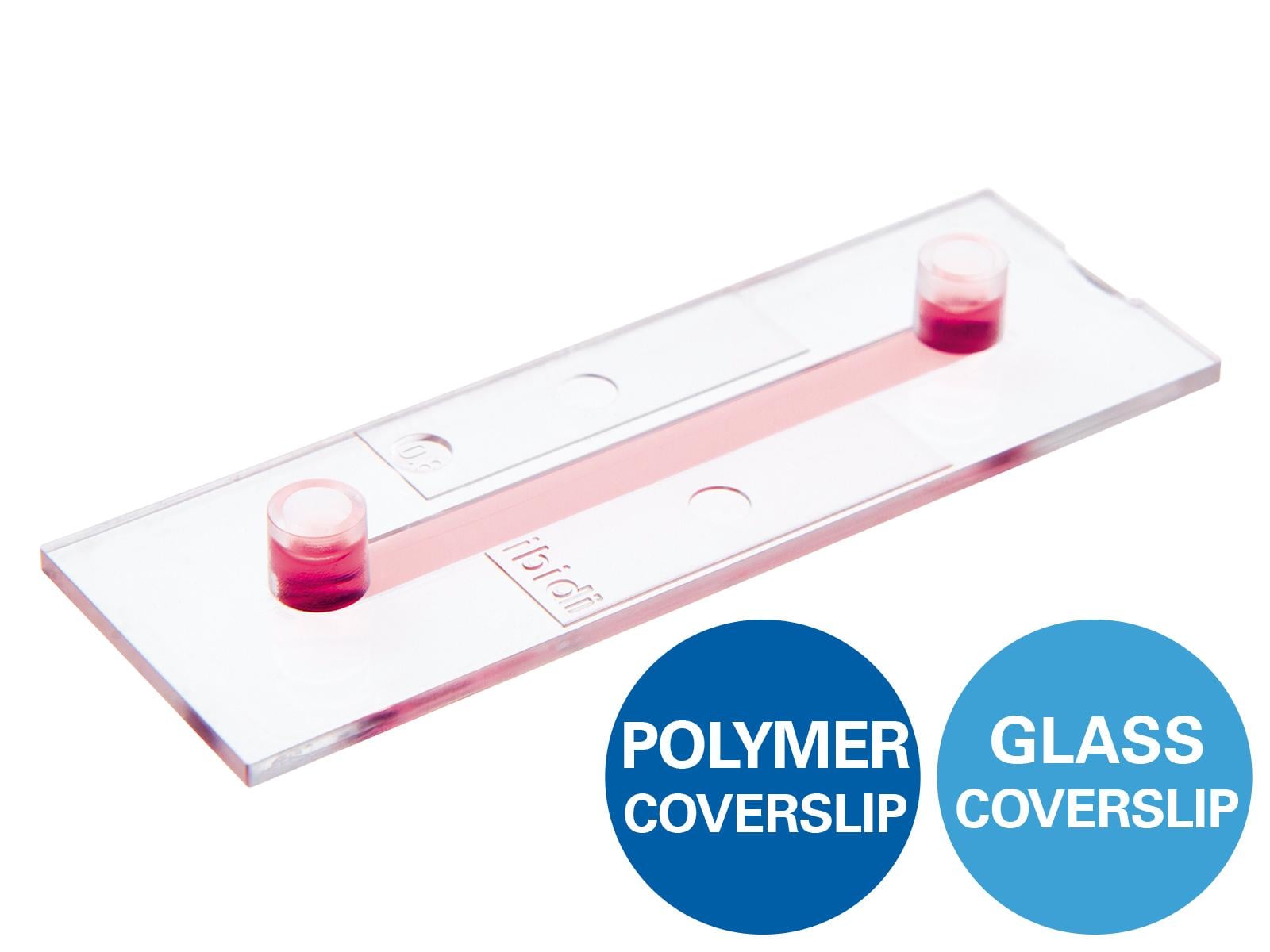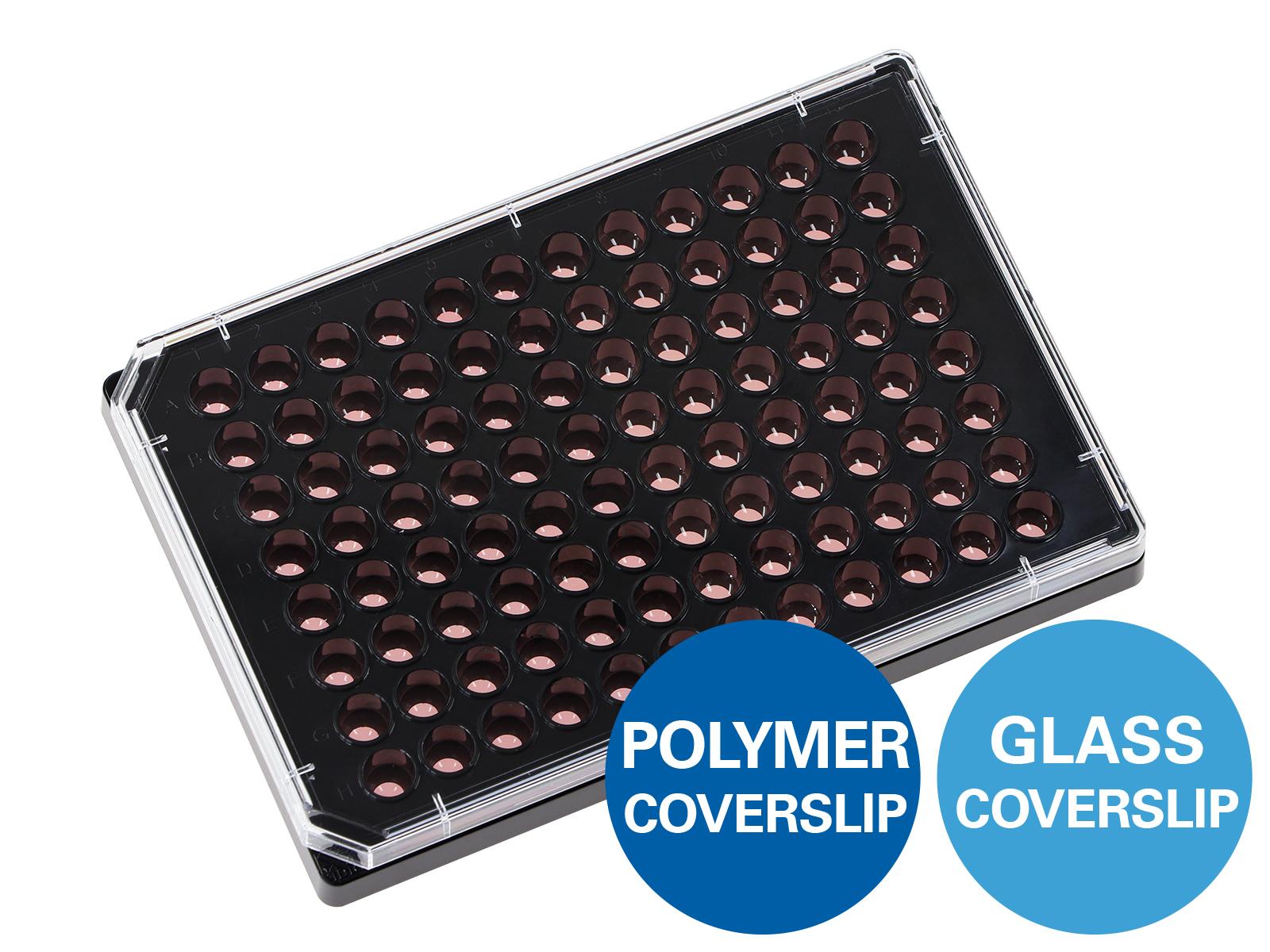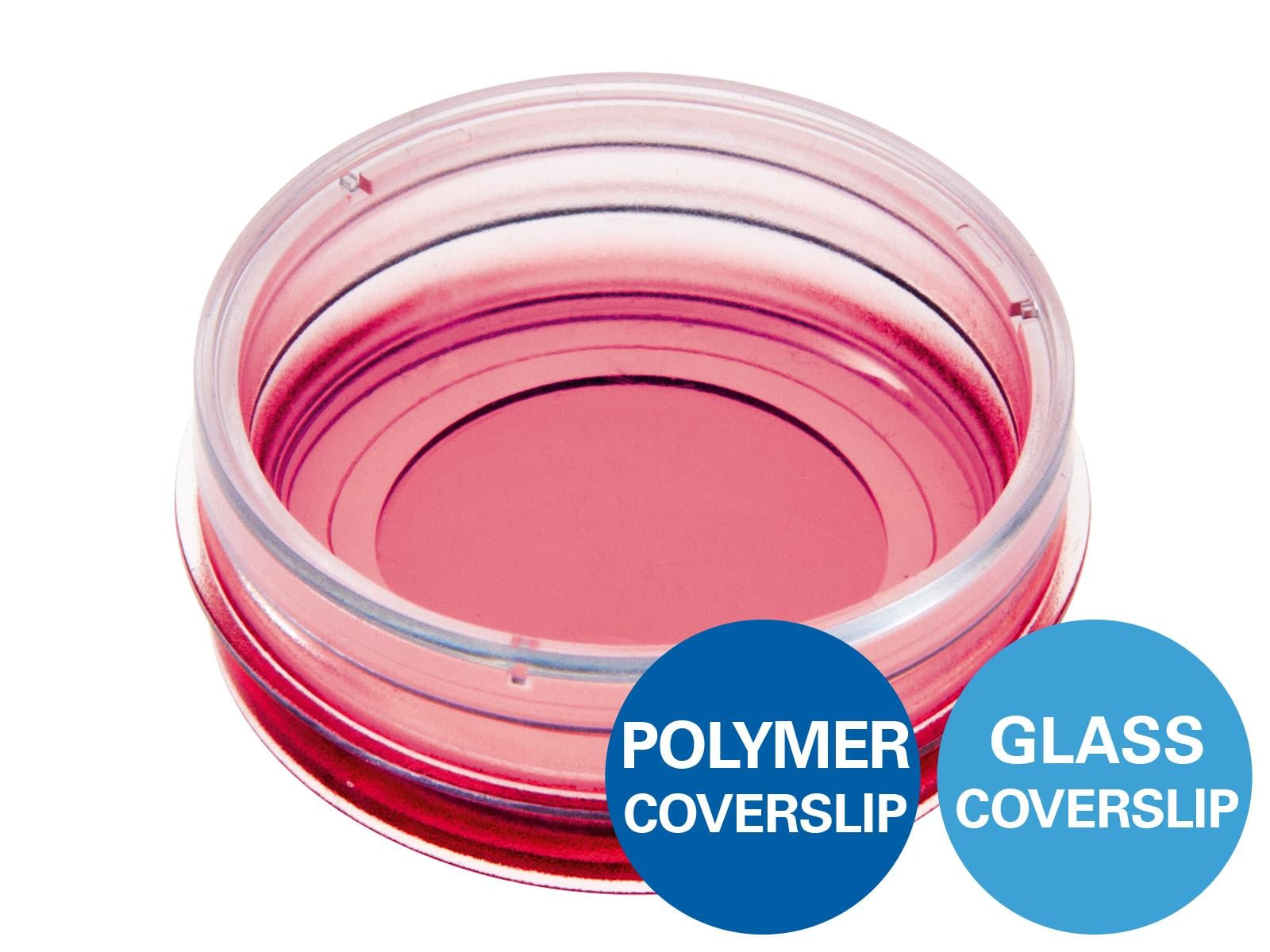The DGZ (Deutsche Gesellschaft für Zellbiologie – German Society for Cell Biology) and ibidi honor Dr. Florian Wilfling with the 2023 Walther Flemming Award.
The Online Award ceremony on November 29, 2023, included a talk about "Ultrastructural analysis of autophagy using correlative cryo-electron tomography" given by the winner.
Dr. Florian Wilfling, Research Group Leader
Florian Wilfling received his Bachelor’s and Master's degree in biochemistry from the Technical University of Munich. His subsequent doctoral work at the LMU Munich and the Yale School of Medicine, supervised by Prof. Tobias Walther, was focused on the translocation mechanisms of ER-resident transmembrane proteins to lipid droplets and their impact on lipid droplet growth.
His postdoctoral research at the Max Planck Institute of Biochemistry in Planegg, Germany, with Prof. Stefan Jentsch focused on selective autophagy pathways and the role of intrinsic receptors for the targeted degradation of complex macromolecular machines. As a project leader in the group of Prof. Wolfgang Baumeister and Prof. Brenda Schulman, Florian Wilfling then proceeded to use cryo-electron tomography for the study of autophagosome biogenesis in situ. In 2021, Florian Wilfling established his own research group at the Max Planck Institute of Biophysics in Frankfurt am Main, Germany. His team is investigating how cargo properties influence autophagosome biogenesis and how this process occurs at the structural level on the cargo surface.
More detailed information on Dr. Wilfling's research is available at:
https://www.biophys.mpg.de/mechanisms-cellular-quality-control
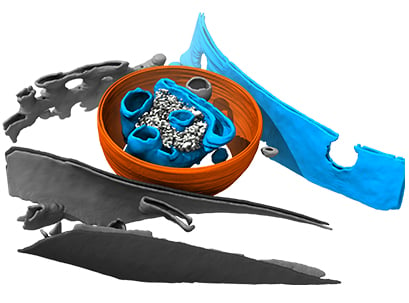
Segmentation of a cryo-CLEM tomogram showing an autophagosome with an END cargo inside.
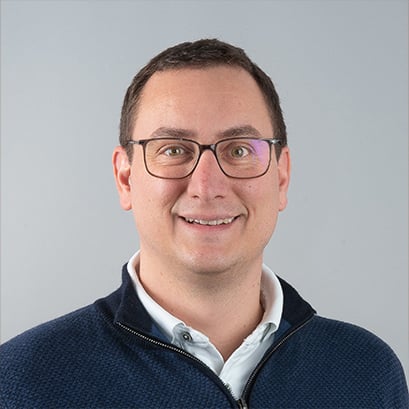
Dr. Florian Wilfling
Ultrastructural Analysis of Autophagy
Using Correlative Cryo-Electron Tomography
Autophagy is an important cellular quality control pathway and its dysfunction is associated with several human diseases, including metabolic disorders, neurodegeneration and cancer. During autophagy, double-membrane organelles called autophagosomes are newly synthesized to engulf and transport cytosolic material for lysosomal degradation. The targeted material can be extremely diverse in size and nature, ranging from protein complexes to aggregates, organelles and even invading pathogens, such as bacteria. This allows the cell to remove and recycle bulky cellular materials as needed. How autophagosomes are built to accommodate such diverse cargo is incompletely understood.
To gain insight into this process, Florian Wilfling and his team use correlative cryo-electron tomography to image autophagic membranes at high resolution in cells of different organisms, from budding yeast to mammalian cells, during bulk and selective autophagy, respectively. This allows high-resolution views of autophagic membranes and their cargo directly in the native environment of the cell. Mapping of individual autophagic structures reveals a dynamic change in membrane shape and curvature in growing phagophores. This work also reveals unexpected features of growing autophagosomes, such as an extremely thin intermembrane distance that widens at the phagophore rim and is conserved from yeast to mammals. In addition, Florian Wilfling’s group is able to map the organelle interactome of growing autophagosomes, revealing a polar organization of contact sites between the phagophore and organelles, such as the endoplasmic reticulum. Taken together, these findings have important implications for the contribution of different membrane sources during autophagy and for the forces that shape and drive phagophores toward closure, providing insight into autophagosome biogenesis and the contribution of its cargo to this process.
The Walther Flemming Award
Since 2004, the German Society for Cell Biology (DGZ) and ibidi annually offer the "Walther Flemming Award," which recognizes excellent research in cell biology. The award consists of a financial contribution of EUR 3.000 that is given to senior postdoctoral researchers and early career group leaders for recent work that defines their emerging independent research profile.
The award was created to honor Walther Flemming, one of the pioneers of cell biology and cytogenetics. He investigated the process of cell division and coined the terms chromatin and mitosis.

